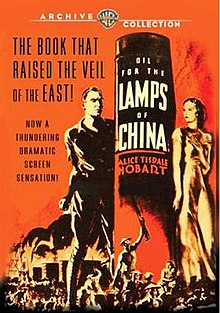
Pete is a cartoon character created by Walt Disney and Ub Iwerks of The Walt Disney Company. Pete is traditionally depicted as the villainous arch-nemesis of Mickey Mouse, and was made notorious for his repeated attempts to kidnap Minnie Mouse. Pete is the oldest continuing Disney character, having debuted in the cartoon Alice Solves the Puzzle in 1925. He originally bore the appearance of an anthropomorphic bear, but with the advent of Mickey in 1928, he was defined as a cat.

Edwin Laurentine Drake, also known as Colonel Drake, was an American businessman and the first American to successfully drill for oil.

The White Rabbit is a fictional and anthropomorphic character in Lewis Carroll's 1865 book Alice's Adventures in Wonderland. He appears at the very beginning of the book, in chapter one, wearing a waistcoat, and muttering "Oh dear! Oh dear! I shall be too late!" Alice follows him down the rabbit hole into Wonderland. Alice encounters him again when he mistakes her for his housemaid Mary Ann and she becomes trapped in his house after growing too large. The Rabbit shows up again in the last few chapters, as a herald-like servant of the King and Queen of Hearts.
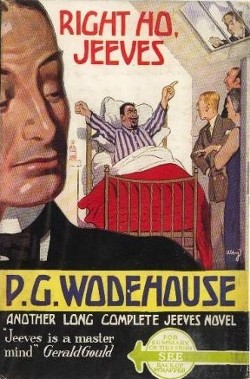
Right Ho, Jeeves is a novel by P. G. Wodehouse, the second full-length novel featuring the popular characters Jeeves and Bertie Wooster, after Thank You, Jeeves. It was first published in the United Kingdom on 5 October 1934 by Herbert Jenkins, London, and in the United States on 15 October 1934 by Little, Brown and Company, Boston, under the title Brinkley Manor. It had also been sold to the Saturday Evening Post, in which it appeared in serial form from 23 December 1933 to 27 January 1934, and in England in the Grand Magazine from April to September 1934. Wodehouse had already started planning this sequel while working on Thank You, Jeeves.
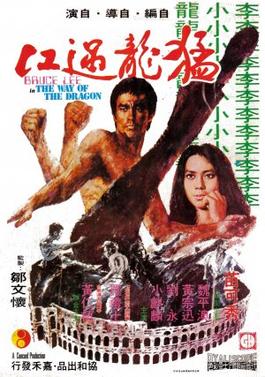
The Way of the Dragon is a 1972 Hong Kong martial arts action comedy film co-produced and directed by Bruce Lee, who also stars in the lead role. This is Lee's only complete directorial film and the last one released during his lifetime. The film co-stars Nora Miao, Robert Wall, Wei Ping-ou and Chuck Norris.
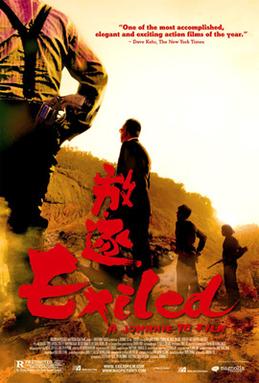
Exiled is a 2006 Hong Kong action drama film produced and directed by Johnnie To, and starring Anthony Wong, Francis Ng, Nick Cheung, Josie Ho, Roy Cheung and Lam Suet, with special appearances by Richie Jen and Simon Yam. The action takes place in contemporary Macau. The film made its premiere at the 63rd Venice International Film Festival, and was in competition for the Golden Lion.

The Parable of the Ten Virgins, also known as the Parable of the Wise and Foolish Virgins or the Parable of the ten bridesmaids, is one of the parables of Jesus. According to Matthew 25:1–13, ten virgins await a bridegroom; five have brought enough oil for their lamps for the wait, while the oil of the other five runs out. The five virgins who are prepared for the bridegroom's arrival are rewarded, while the five who went to buy further oil miss the bridegroom's arrival and are disowned.
Adam LeFevre is an American character actor, poet, and playwright who works in cinema, television, theater and commercials.

Memoirs of an Invisible Man is a 1992 American comedy-drama film directed by John Carpenter and starring Chevy Chase, Daryl Hannah, Sam Neill, Michael McKean and Stephen Tobolowsky. The film is loosely based on Memoirs of an Invisible Man, a 1987 novel by H.F. Saint. According to screenwriter William Goldman's book Which Lie Did I Tell?, the film was initially developed for director Ivan Reitman; however, this version never came to fruition, due to disagreements between Reitman and Chase. The film was a critical and commercial failure.

The Dawn Rider is a 1935 American Western film starring John Wayne and directed by Robert N. Bradbury.

Running Out of Time is a 1999 Hong Kong action thriller film produced and directed by Johnnie To and starring Andy Lau as a cancer-ridden criminal who challenges a police negotiator, played by Sean Lau, to a 72-hour battle of wits and courage. Andy Lau won his first Hong Kong Film Award for Best Actor in 2000 for his performance in the film. The film was followed by a sequel, Running Out of Time 2, which was released in 2001.

Yellow Sky is a 1948 American Western film directed by William A. Wellman and starring Gregory Peck, Richard Widmark, and Anne Baxter. The story is believed to be loosely adapted from William Shakespeare's The Tempest. The screenplay concerns a band of reprobate outlaws who flee after a bank robbery and encounter an old man and his granddaughter in a ghost town.
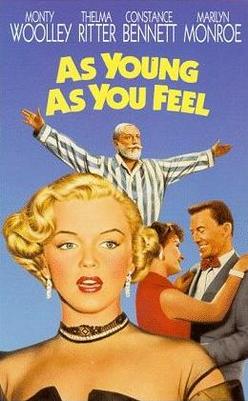
As Young as You Feel is a 1951 American comedy film starring Monty Woolley, Thelma Ritter, and David Wayne, with Marilyn Monroe in a small role. It was directed by Harmon Jones.
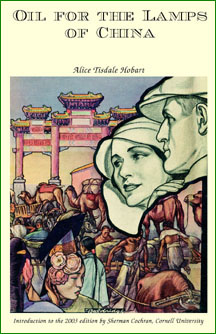
Oil for the Lamps of China is a 1933 novel by Alice Tisdale Hobart which became a bestseller in 1934. It was originally published by Bobbs Merrill and reprinted by EastBridge in 2002 (ISBN 1891936085).
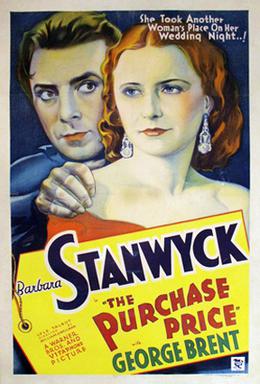
The Purchase Price is a 1932 pre-Code American romantic drama film directed by William Wellman and starring Barbara Stanwyck, George Brent and Lyle Talbot. Adapted from the novel The Mud Lark by Arthur Stringer, with a screenplay by Robert Lord, the film is about an attractive nightclub singer who leaves her criminal boyfriend and becomes the mail-order bride of a humble farmer.

A Man Called Hero is a 1999 Hong Kong wuxia film directed by Andrew Lau. It is loosely based on the manhua series Chinese Hero: Tales of the Blood Sword by Hong Kong artist Ma Wing-shing. It won the 1999 Golden Horse Award for Best Visual Effects.

Don Megowan was an American actor. He played the Gill-man on land in The Creature Walks Among Us, the final part of the Creature from the Black Lagoon trilogy.
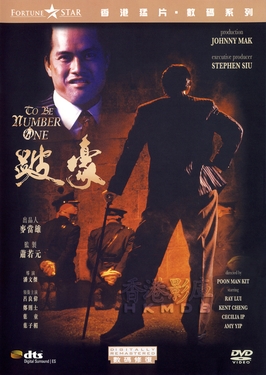
To Be Number One is a 1991 Hong Kong gangster film directed by Poon Man-kit, and produced by Stephen Shiu. The film is based on the rise and fall of a real-life gangster Ng Sik-ho, who is portrayed in the film by Ray Lui. To Be Number One was a critical and box office success, grossing HK$38,703,363 at the Hong Kong box office and winning the Hong Kong Film Award for Best Film at the 11th Hong Kong Film Awards. In 2017, the film was remade as Chasing the Dragon.
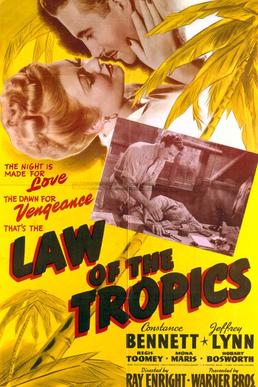
Law of the Tropics is a 1941 American drama film directed by Ray Enright and starring Constance Bennett, Jeffrey Lynn and Regis Toomey. By the time Bennett made the film, her career was in steep decline. It was produced and distributed by Warner Brothers.
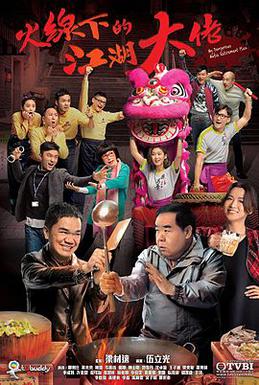
My Dangerous Mafia Retirement Plan is a 2016 Hong Kong modern comedy television drama produced by Leung Choi-yuen for TVB, starring Kent Cheng, Tommy Wong, Alice Chan and Eliza Sam as the main leads. Filming took place from October 2015 to February 2016 on location in Hong Kong. The series premiered on April 25, 2016, airing every Monday to Friday on Hong Kong's TVB Jade, Malaysia's Astro On Demand and Australia's TVBJ channels during its 8:30-9:30 pm timeslot, concluding May 27, 2016 with a total of 25 episodes.
